The CMP Review — Week of January 8
January 8, 2024

“Needs of body, needs of mind, e.g., food, warmth, healing—love, justice, hope, companionship, security, etc., etc. A long list—do you notice that in a really happy home they all get attention? Not all at once, all the time, but each need gets answered, some time, in some way. We are in need and we feel a desire, we want something deeply, passionately—affection, notice, a friend, quiet, whatever it may be. Our needs are the ground of our human nature from which our thoughts, hopes, fears and joys grow up. Children are especially needy people. That is why Fathers and Mothers must be peacemakers, must give loving thought and care in order that the children may have their four great needs supplied—Leadership, Healing, Feeding, and Teaching.” (Essex Cholmondeley, Parents Are Peacemakers)
@tessakeath
January 9, 2024
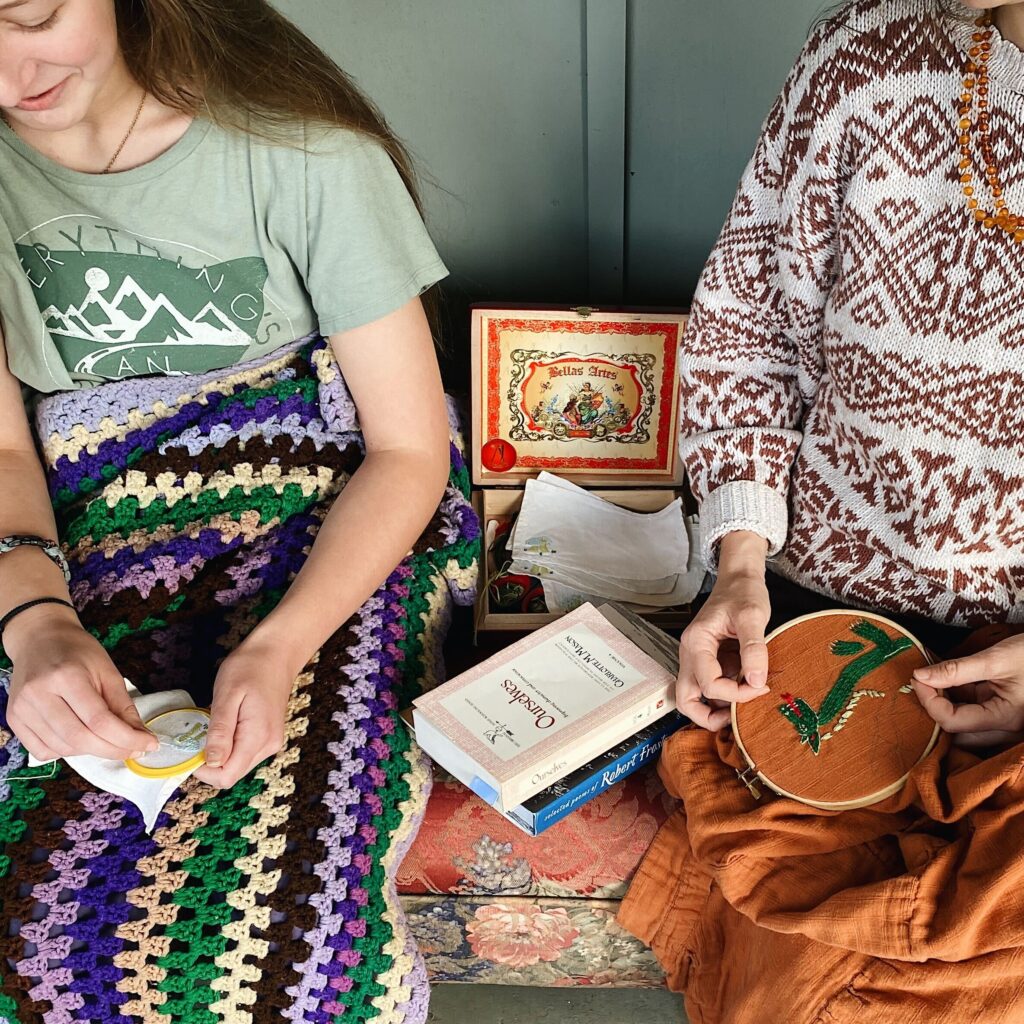
When Sarah Norton was 12 years old, her parents faced a tough decision. Sure, they had homeschooled their daughter from the earliest years. But now things were different. Sarah was going to be a teenager. Her mother, Olive Norton, was not qualified to teach upper-level subjects. Mrs. Norton had grown up in a different country and was unfamiliar with secondary-school requirements. And what about socialization?
The easy course, the natural course, would be to stop homeschooling and send Sarah to school. But after giving the matter deep and careful consideration, Captain and Mrs. Norton made an extraordinary choice. They decided to keep educating Sarah at home. And they stuck with their decision until their daughter had passed all the exams required for her to move on to higher education.
How did the Nortons do it? Today we share their story. Read or listen with paper and pencil in hand and note all the choices they made and the actions they took to reach their goal. And as you read or listen, you might not even notice that this story is from 1962. The Nortons were Charlotte Mason educators blazing the trail for us. Find their story here.
@artmiddlekauff
January 10, 2024
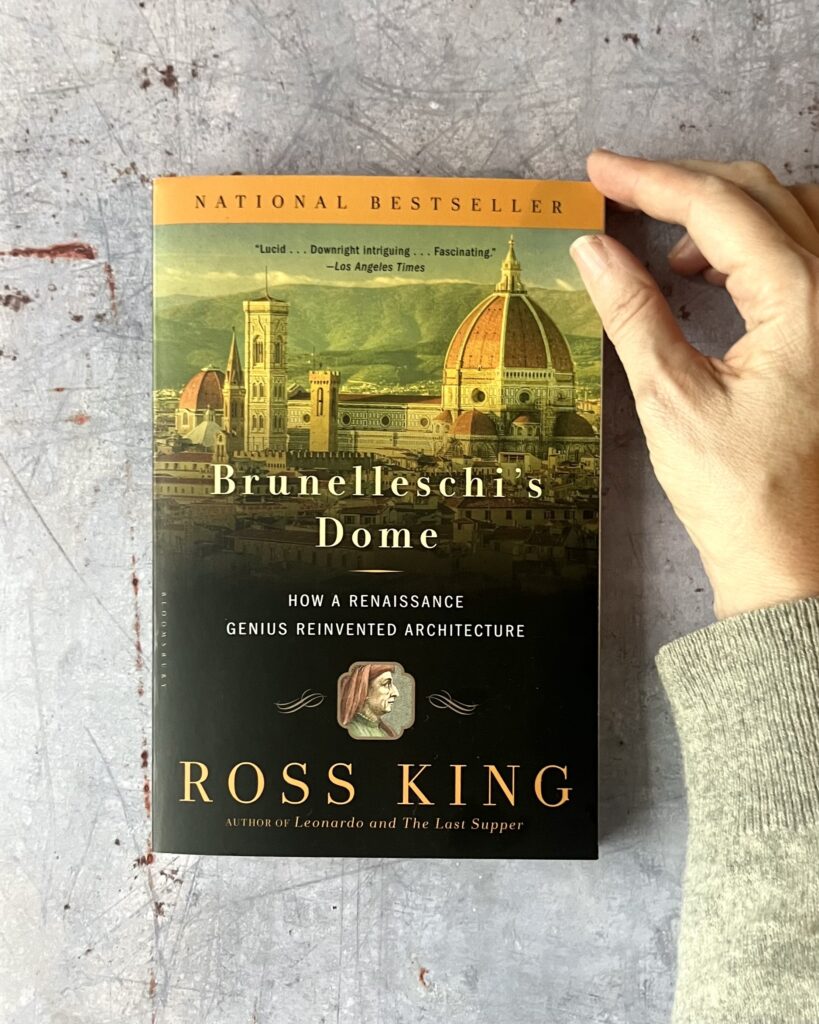
This is my current read and it’s absolutely fascinating. Ross King gives us a history of architecture, engineering, materials, and people as refracted through the cathedral dome of Florence’s Santa Maria del Fiore. King shares the sheer genius of Filippo Brunelleschi—the goldsmith and clockmaker who engineered the dome—while also detailing the drama and competition of getting (and keeping) architectural commissions in Renaissance Italy.
Tell me what you’re reading now and if you enjoy books on art history, too.
@rbaburina
January 11, 2024

In 1936, Mary Hardcastle, then Secretary of the House of Education, wrote these captivating words: “Each moment has its outward visible sign and inward spiritual grace.”
She referred to it as “the sacrament of the present moment.” But she also gave a warning: “It is only as we have eyes to see, ears to hear and minds turned away from self, that we are able to receive and use what that moment has to give.”
Eight decades later, Catherine Price wrote of a new device that turns our eyes away from the present moment: “if you wanted to invent a device that could rewire our minds, if you wanted to create a society of people who were perpetually distracted, isolated, and overtired, if you wanted to weaken our memories and damage our capacity for focus and deep thought, if you wanted to reduce empathy, encourage self-absorption, and redraw the lines of social etiquette, you’d likely end up with a smartphone.”
Felicia Wu Song describes the ecology formed by this device: “When we are at work, watching our kids, having a meal, or sitting through a meeting, our regular interface with the digital ecology has trained us to feel as if something else is always happening, something potentially more important. And so many of us feel the itch to peek and know. The result is that whatever is taking place around us, whatever proximate reality we find ourselves in, it begins to feel less interesting, more stifling, and more like something we want to be released from or bypass altogether.”
Does the present moment carry for me an inward spiritual grace? Or is it keeping me from something better and more important that is happening somewhere else? The answer may largely depend on what device is in my hand.
No doubt my smartphone is a powerful and useful tool. But if the present moment is a sacrament, then my phone is a sacrament-killer. When an outward and visible sign is near, with its inward and spiritual grace, I want my device as far from me as possible.
@artmiddlekauff
📷 @aolander
January 12, 2024
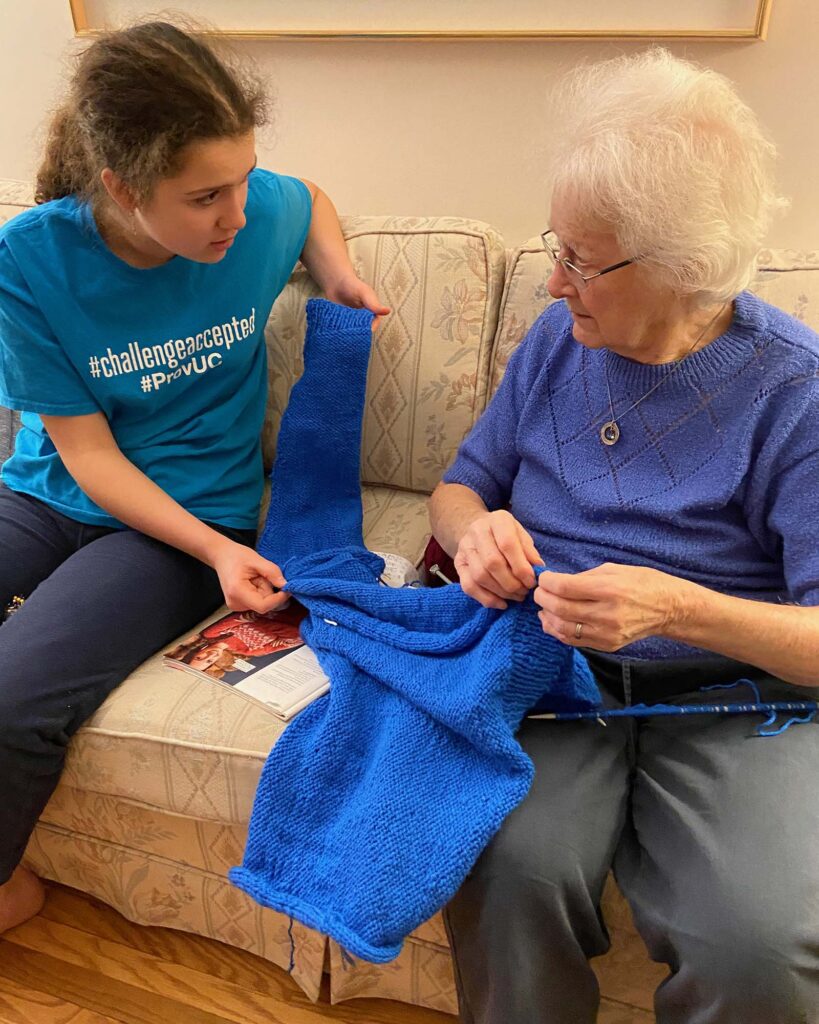
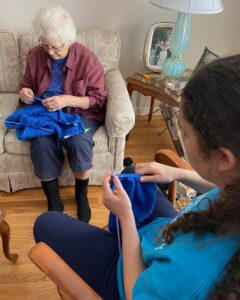
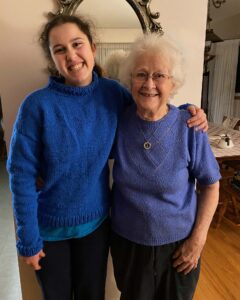
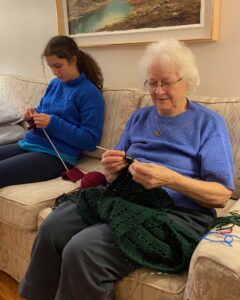
A knitting story in 4 pictures.😍🧶
Many months ago, grandma Greco got Serafina started on knitting a sweater. She has been diligently working on it since then.
We went to visit grandma just after new year’s (we live about 2200 km apart) and Serafina brought along all her sweater pieces so that grandma could help her with the final construction. They worked on it together, and, ta da, the sweater is complete!
Here are the moments from the collaboration, the final product, and then each of them moving on to their next project. Because, well, “makers gonna make”!
@antonella.f.greco
January 13, 2024
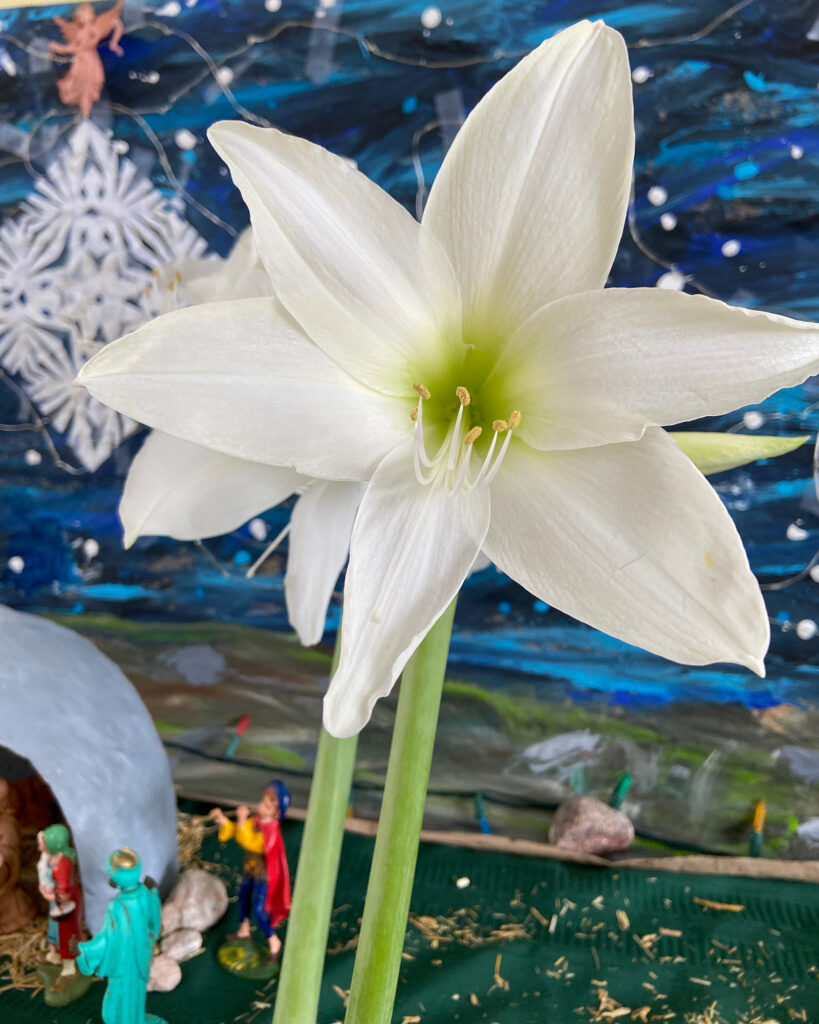
The Way of Humility … There are many ways of getting away from the thought of ourselves; the love and knowledge of birds and flowers, of clouds and stones, of all that nature has to show us; pictures, books, people, anything outside of us, will help us to escape from the tyrant who attacks our hearts. One rather good plan is, when we are talking or writing to our friends, not to talk or write about ‘thou and I.’ There are so many interesting things in the world to discuss that it is a waste of time to talk about ourselves. (Vol IV, Book I, p 129)
@antonella.f.greco
January 14, 2024
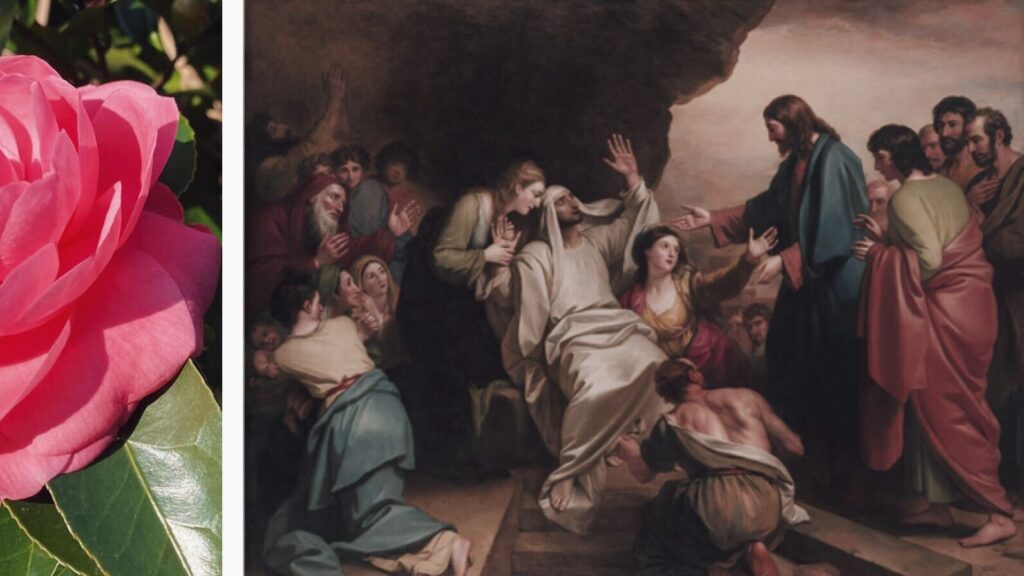
In the middle of the Gospel account of the raising of Lazarus, we are introduced “to one of John’s great minor characters.” N. T. Wright explains:
Thomas is loyal, dogged, slow to understand things, but determined to go on putting one foot in front of another at Jesus’ command. Now he speaks words heavy with foreboding for what’s to come: ‘Let’s go too, and die with him.’ They don’t die with him, of course, or not yet, but this is certainly the right response. There is a great deal that we don’t understand, and our hopes and plans often get thwarted. But if we go with Jesus, even if it’s into the jaws of death, we will be walking in the light, whereas if we press ahead arrogantly with our own plans and ambitions we are bound to trip up.
The title of today’s poem by Charlotte Mason is taken from the words of John’s great minor character. Read or hear it here, and consider what it really means to walk in the light.
@artmiddlekauff